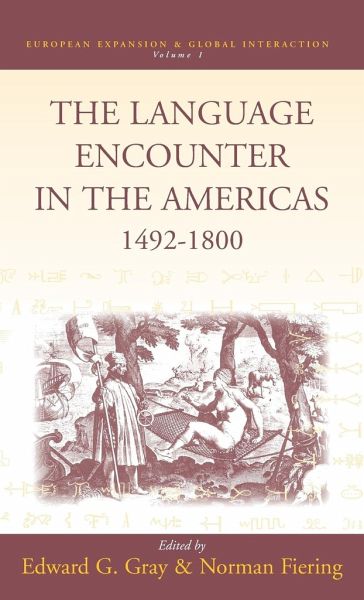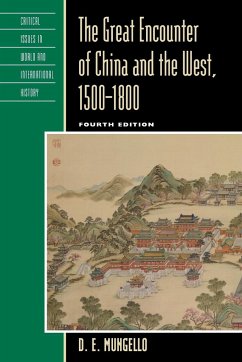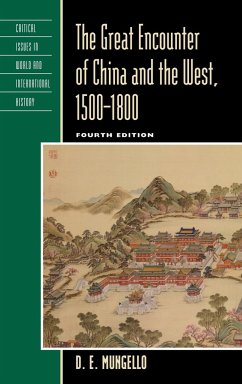
The Language Encounter in the Americas, 1492-1800
Versandkostenfrei!
Versandfertig in 1-2 Wochen
131,99 €
inkl. MwSt.

PAYBACK Punkte
66 °P sammeln!
When Columbus arrived in the Americas there were, it is believed, as many as 2,000 distinct, mutually unintelligible tongues spoken in the western hemisphere, encompassing the entire area from the Arctic Circle to Tierra del Fuego. This astonishing fact has generally escaped the attention of historians, in part because many of these indigenous languages have since become extinct. And yet the burden of overcoming America's language barriers was perhaps the one problem faced by all peoples of the New World in the early modern era: African slaves and Native Americans in the Lower Mississippi Vall...
When Columbus arrived in the Americas there were, it is believed, as many as 2,000 distinct, mutually unintelligible tongues spoken in the western hemisphere, encompassing the entire area from the Arctic Circle to Tierra del Fuego. This astonishing fact has generally escaped the attention of historians, in part because many of these indigenous languages have since become extinct. And yet the burden of overcoming America's language barriers was perhaps the one problem faced by all peoples of the New World in the early modern era: African slaves and Native Americans in the Lower Mississippi Valley; Jesuit missionaries and Huron-speaking peoples in New France; Spanish conquistadors and the Aztec rulers. All of these groups confronted America's complex linguistic environment, and all of them had to devise ways of transcending that environment - a problem that arose often with life or death implications. For the first time, historians, anthropologists, literature specialists, and linguists have come together to reflect, in the fifteen original essays presented in this volume, on the various modes of contact and communication that took place between the Europeans and the "Natives." A particularly important aspect of this fascinating collection is the way it demonstrates the interactive nature of the encounter and how Native peoples found ways to shape and adapt imported systems of spoken and written communication to their own spiritual and material needs.












